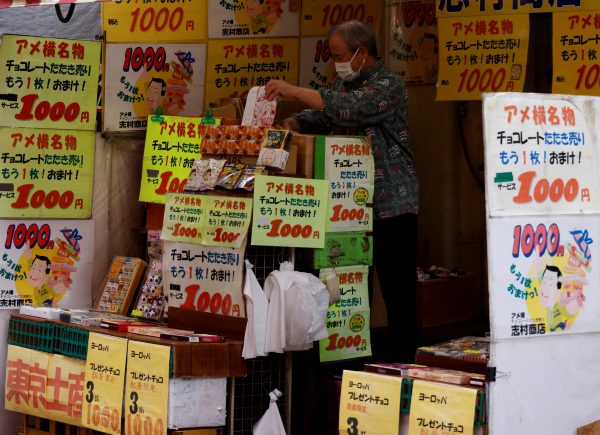Financial insecurity grips Japan as majority fear future
A government survey reveals that 63.2% of Japanese respondents feel financially insecure, citing concerns over rising prices and economic challenges
A recent government survey in Japan has unveiled a concerning trend, with a record-breaking 63.2% of respondents expressing feelings of financial insecurity and harboring pessimistic views about their future.
The survey, conducted by the Cabinet Office, highlighted a 0.7 percentage point increase in the proportion of individuals experiencing financial stress compared to the previous year, attributed to the surge in prices.
Out of approximately 3,000 respondents aged 18 or older, over 57% participated in the survey conducted last November and December.

In 2023, Japan witnessed a notable uptick in core consumer prices, soaring by 3.1%, marking the swiftest increase in 41 years.
Conversely, real wages declined 2.5% for the second consecutive year, failing to keep pace with inflation, as indicated by government data.
Challenges in child-rearing, societal barriers against women, inflation
Key findings revealed that 28.6% of respondents voiced challenges in child-rearing, closely followed by 28.2% who expressed concerns about the difficulties faced by young people striving for independence.
Additionally, 26.2% believed that societal barriers hindered women from playing active roles, while 25.8% expressed dissatisfaction with their work environments.
A staggering 69.4% of respondents voiced concerns that inflation was steering the country toward a negative trajectory, with many expressing apprehensions about the state of the economy.
Furthermore, a separate private-sector poll conducted in November highlighted the financial struggles faced by over 46% of regular workers in dual-income households, reflecting broader economic challenges in the world’s fourth-largest economy.
Despite these grim findings, there was a glimmer of optimism as 25.1% of respondents believed that medical and welfare services were showing signs of improvement.
Source: Newsroom



